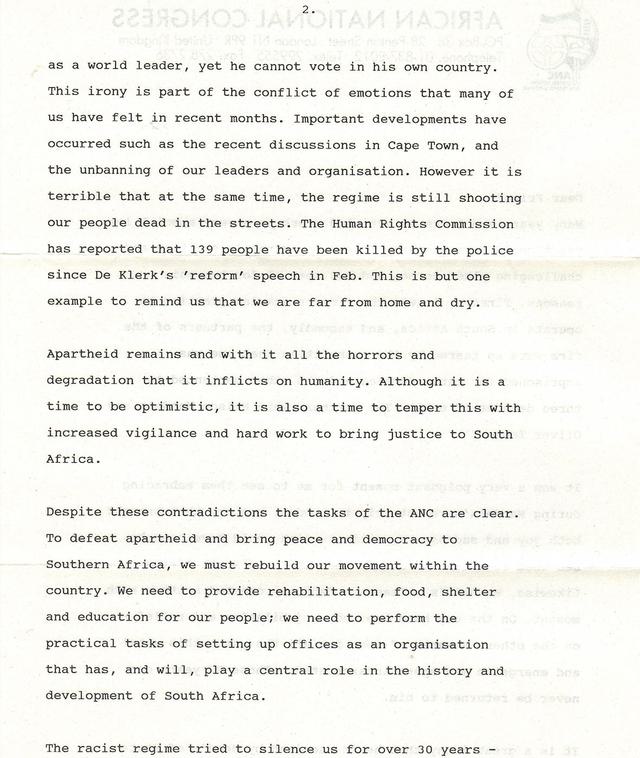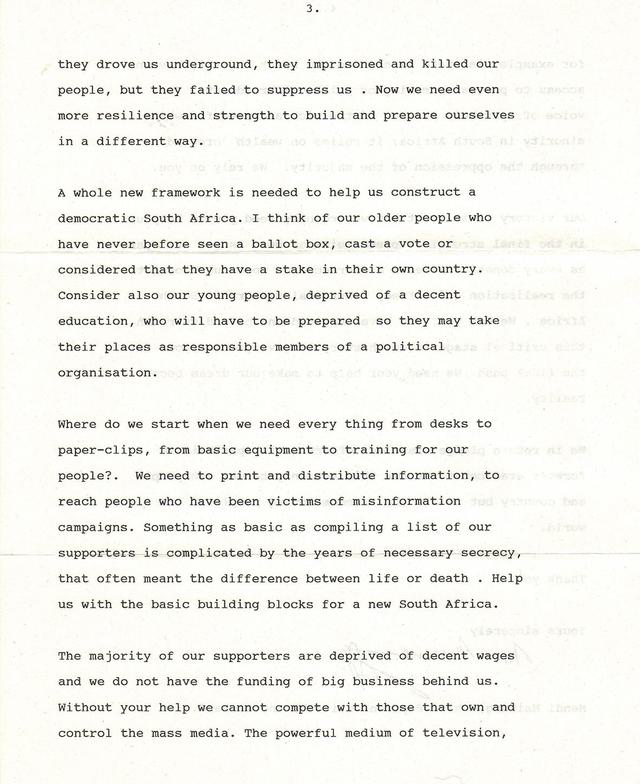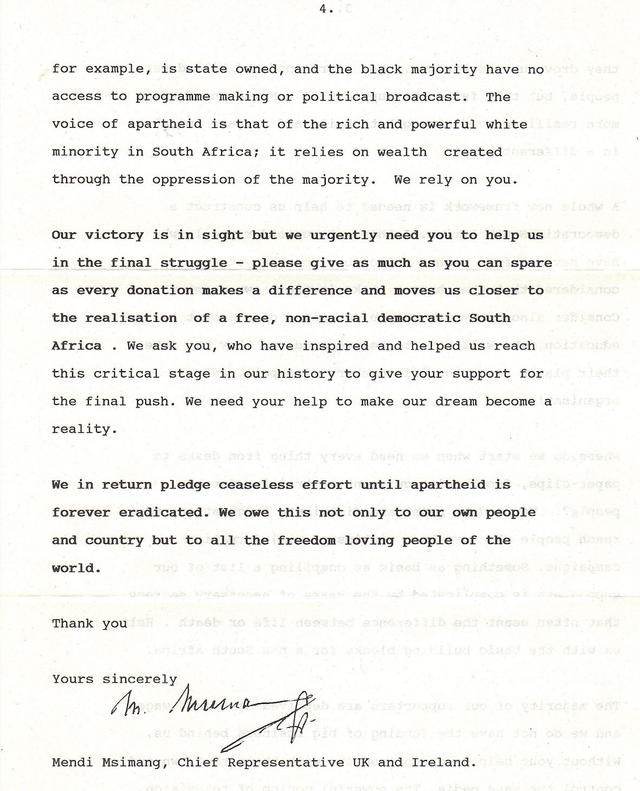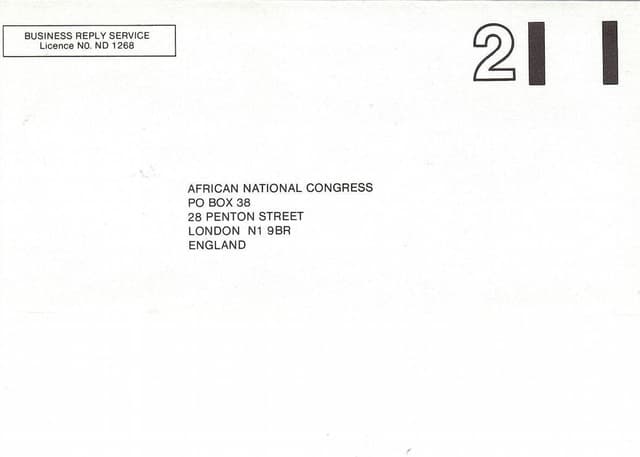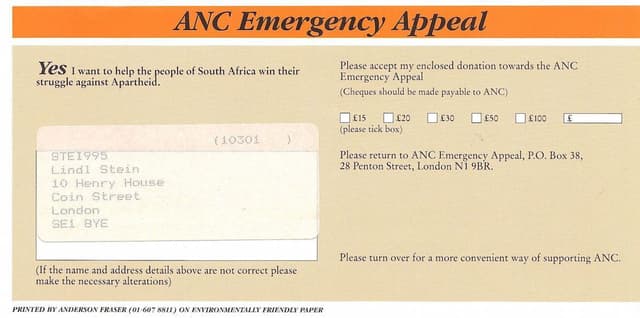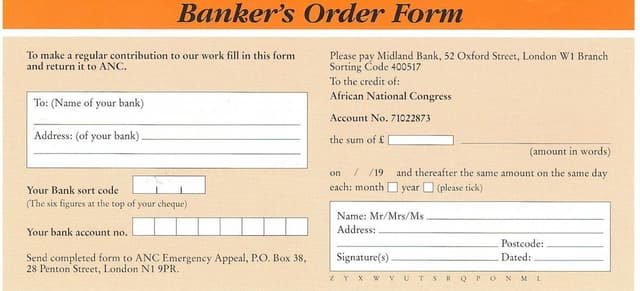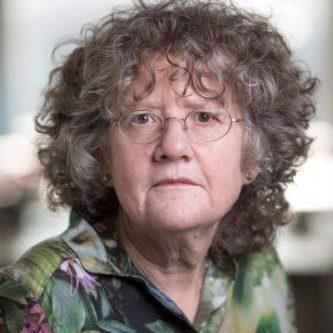How often in life do you have total satisfaction?
That is what my dad said to me on the night of South Africa’s first-ever democratic election in 1994. We were in the heart of the ancien régime – the gold leaf, statuary and marble illustrating its victories. After so much pain, loss, courage and endurance the cruel leaders of apartheid were finally defeated.
- Written by
- Lyndall Stein
- Added
- October 14, 2015
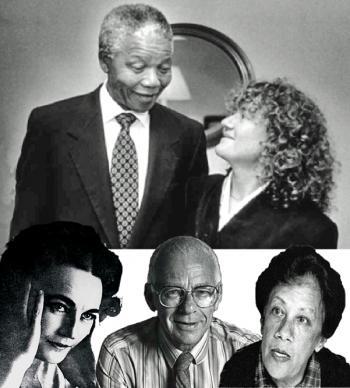
We had played a small part, little cogs, in a mighty and extraordinary machine. Several years earlier a few of us had been asked to raise money for the ANC, then still in exile, still illegal, besieged, hunted down, members assassinated, its offices bombed, their representatives murdered. Dulcie September the ANC’s official representative in Paris, a gentle middle-aged woman, had been gunned down on her doorstep by an unknown assassin. Geoffrey in Brussels, fulfilling the same peaceful role, had been shot at and miraculously escaped with minor injuries. Our own dear friend, Ruth First, journalist and academic had been teaching in Mozambique when a parcel bomb cruelly murdered her.
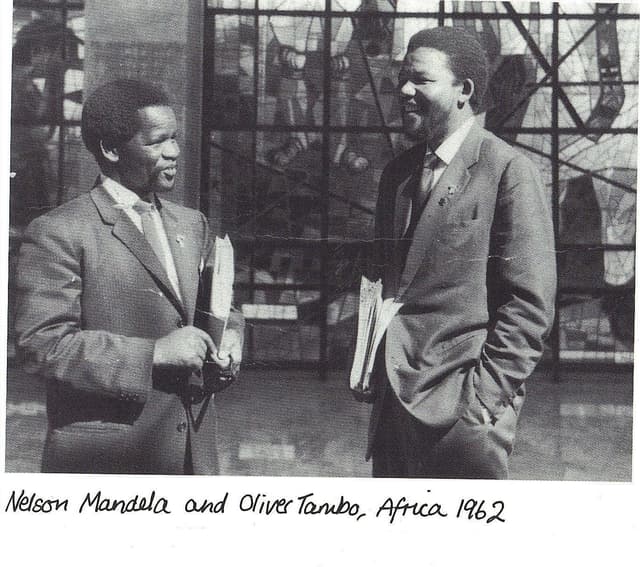 View original image
View original image
All this, whilst the evil tentacles of the apartheid regime poisoned priests, jailed children, murdered those struggling for freedom all over the world. In Mozambique, Lesotho, Zambia, Angola, South Africa, wherever brave South Africans fought and struggled and resisted, the evil agents of apartheid would follow, pursuing those who claimed their human rights. Their grotesque response was always the same – cruelty, viciousness, violence and death for those who only wanted truth, freedom and democracy.
This was the worst of times when it seemed the struggle would never end. We all feared that Nelson Mandela and his band of brave fighters would die prisoners of the regime.
The ANC came to Sylvester, my dad. Wolfie Kodeish must have been there – that redoubtable, intrepid, roly-poly, dynamic, ball of commitment and courage who had walked away from his family brick-building business to devote his life to the struggle. They came to visit my dad, a successful publisher, because they knew he could be trusted. He was a lifelong supporter of the ANC, best friends with Joe Slovo, the leader of the army of liberation, and always ready with a quiet contribution of money and support.
They wanted money, but they wanted money for the struggle, not for refugee hospitals or schools – they had a highly effective machine for getting this ‘easy money’, the Scandinavians, the Dutch and many others gave generously to humanitarian appeals. What they needed was money to spend ‘wherever it was most needed’. That was tough! So Wolfie and a couple of others appealed to Sylvester. I guess they thought he at least knew how to make money.
None of us had the slightest idea of how to start…
He called me shortly afterwards and asked me for help. He also enlisted another South African, a very clever businessman, Jonathan Bloch.
None of us had the slightest idea of how to start, but we shared a set of complementary skills, that somehow worked. Jonathan ran a business selling money products through direct marketing and Sylvester published newsletters and sold them through direct mail. I was a fully paid-up member of the printers’ union the National Graphical Association, working in a community print workshop, Community Press, so I guess I understood two useful elements: activism and print and production.
My work involved every part of the process and, frankly, I was pretty useless at it all, but I understood how to make stuff work on paper. We all shared another important resource: contacts and networks. What we did not have was any budget, staff, space, or lists of supporters to work with.
The ANC were way too anxious about security to give us any names and warned us, in the strongest possible terms, to be very, very cautious about telling anyone about what we were doing. The ANC office in Panton Street had recently been bombed and we took their warnings seriously.
The secret of our success was the simplicity and justice of the cause…
So where could we start? We realised that we had better start with our own address books, but what could we send? We had no money for agencies, designers, or printers. Sylvester stumped up for the stamps, we wrote that first letter ourselves and I printed and designed it myself. I sat at my kitchen table folded those first letters, stuffed the envelopes, stuck on the stamps, wrote out the addresses and we were off.
We had started our fundraising campaign, one that would generate millions of pounds over the next few years. Nine million for the election campaign some years later and, in the intervening time, generating over five million pounds and 70,000 new supporters for the ANC.
The secret of our success was, of course, the simplicity and justice of the cause, the tremendous contribution of expert volunteers and the application of tough business sense.
The tough business sense came from Sylvester and Jonathan. The expert volunteers where Charlotte Grimshaw then marketing director of Greenpeace, Jon Allen outstanding creative guru and, of course, Roger Harris, then working at Anti-Apartheid Enterprises, and Tess Kingham at War on Want.
Very few visitors came down there, the security considerations limited our social contacts
We continued working on the mailings, quite successfully, building from our address books, then from the address books of our friends and contacts. Community Press allowed me to work part-time on the project, whilst still letting me use their resources and equipment. I made cards from scrap to record our supporters’ names and addresses, which where then stored in shoeboxes; my filing cabinet was old photographic paper boxes. You get resourceful when you have no money. Getting stationery from the ANC office up the road in Panton Street required a major negotiation with Charlie, the treasurer, who guarded every pencil as if it was the last one on earth.
I used a corner of Sylvester and Sarah’s home gym as my office – very handy when you needed to give your brain a rest and your body a swift workout. Very few visitors came down there, the security considerations limited our social contacts
Our real breakthrough was in the summer of 1985. Through a contact of Jonathan, I had the good fortune to find Jon Allen, a brilliant copywriter and creative guy. I went to ask his advice and he volunteered to write a press ad for us. Luckily Sylvester had volunteered to risk some money and pay for the space in the Guardian, since the ANC had no money to give us and would not have dreamt of risking the few hundred pounds it cost to put in an ad.
Jon wrote a brilliant and simple appeal:
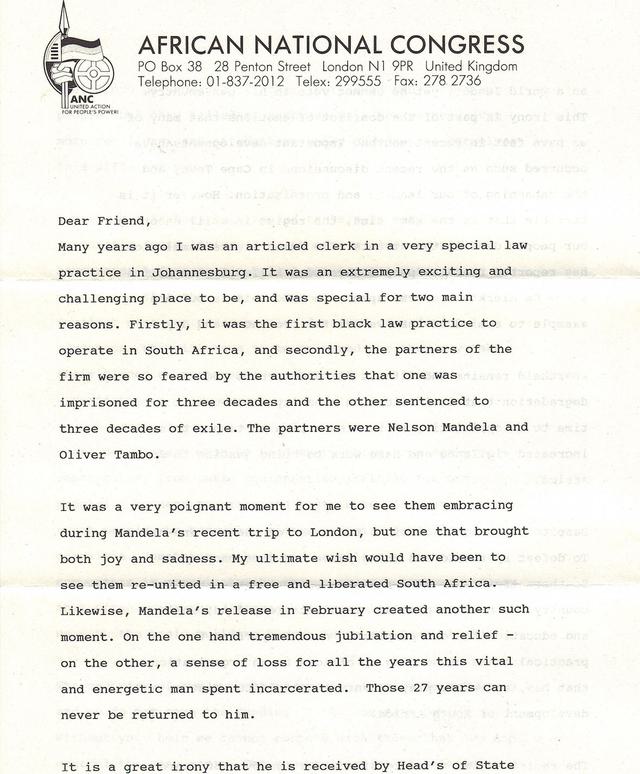 View original image
View original image
‘The injustice of apartheid how can you help?’
It was August 1985 and of course that makes it a slack time for advertising, everyone on the beach you know. I fought hard to get the Guardian sales people to drop the price, not an easy job. The reproduction of the ad was not so great and when I saw it my heart sank. It was a lovely sunny weekend, surely no time for people to turn their attention to the dark horrors of apartheid.
The following Monday I went into the scruffy overcrowded HQ of the ANC and, as I opened the door, the activist George Johannes came out from behind the reception desk and kissed me! The ad had worked. In that first week cheques totalling over £10,000 from thousands of supporters piled through the door. Poor Charlie struggled with his ancient Kalamazoo bookkeeping system – no money for computers then.
No money meant everything was held on cards, every time the supporters were mailed we had to get typists to redo the addresses and a multitude of glorious mistakes resulted.
Some added an extra box ‘for AK47s’
But at the core, the cause was unbeatable and Sylvester and Jonathan applied such entrepreneurial energy, interrogated the results and shouted ‘More! Run the ad again! Mail them again!’
That first ad had promised people an information pack, had offered them a choice as to where there money should go: ‘tick the box for schools, hospitals, or wherever it was most needed’. Many ticked the most needed box, some added an extra box of their own ‘for AK47s’. We had donations of thousands and amongst them a donation of a pound coin, stuck on a note with a message saying, ‘I am a nun and I have no money of my own, a friend gave me this pound and I wanted you to have it’.
Of course we had no information packs and had to work frantically to supply the promised details. We worked with the secret underground team producing info and propaganda in another quiet corner of North London.
We made the ANC a friend of 70,000 people
We found a lovely printer, Liz Shackelton, a trade unionist and tremendous supporter of the ANC. She translated my appalling messy mock-up concepts into pristine print and we created a whole range of appeals to our supporters: a mailing for Mandela’s seventieth birthday inviting people to send back a card with a personal message of support for him; mailings with photos paper-clipped to the letter, for that personal touch; poems, stories and the constant retelling of a drama without precedent. We got thousands of people to become subscribers to ANC News Briefing, a painstaking compilation of news stories on the struggle. A product for the really dedicated and committed, somehow Sylvester’s brilliant copywriting convinced thousands that it was a ‘must have’.
We made the ANC a friend of 70, 000 people and we could have done 10 times better – the mood of the country was so strongly behind us, we were only held back by shortage of time, investment, staff, equipment.
Hundreds of thousands of pounds later, we got our first pc. We persuaded the ANC to give me an assistant or two. They began to pay for the ads and the postage and we even had a visit in our basement gym from Mr Thomas Nkobi, the redoubtable and statesman-like treasurer general. He came in with his Homburg to tell us that what we were doing was as important as the work of the freedom fighters in the trenches, a proud moment for me, whose teenage pin up had been Che Guevara. I had two pictures: one before and one after his execution.
It had been the worst of times. Then it all changed – the best of times began, with the release of Nelson Mandela and the lifting of the ban on the ANC. The next fundraising challenge was ‘votes for freedom’, the whole operation now with income to invest in a top advertising agency, WWAV, with an excellent team of volunteer strategists leading the campaign, space in the ANC office for the team, millions in the bank and an overwhelming victory for democracy.
Jubilant supporters in South Africa House, dancing, laughing and cheering – how often in life do you have total satisfaction?



